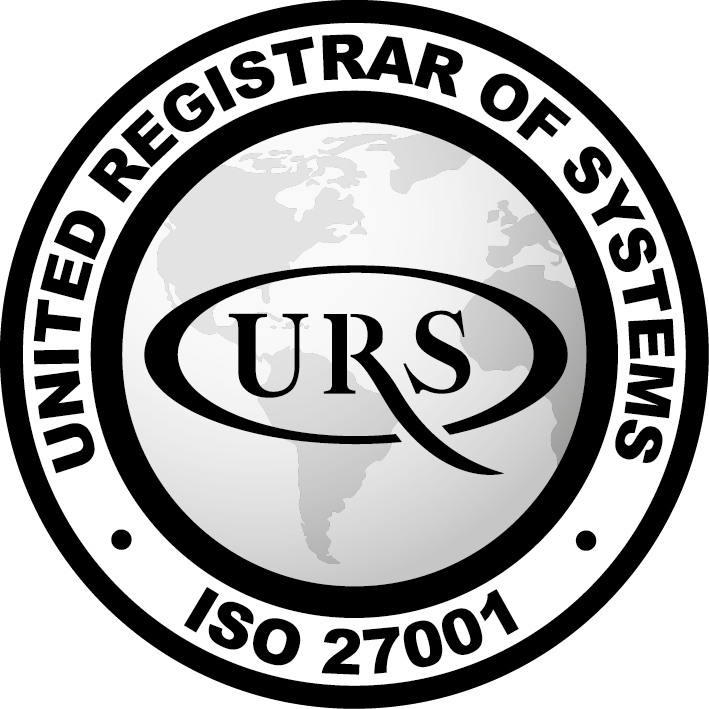5 Reasons Why Your Next App Should Be Cloud-Native: Insights from our Team Leads

In today's digital age, businesses are increasingly reliant on technology to drive growth and innovation.
As such, the development of applications has become a crucial component of a successful business strategy. The rising popularity of cloud-native apps has caught the attention of many businesses seeking to stay ahead of the curve.
Almost gone are the days of building business apps for specific hardware and operating systems. With cloud-native app development, the focus is on using modern infrastructure and application frameworks to create software that can run on cloud platforms like AWS, Azure, and GCP. This approach enables create highly scalable, resilient, and agile applications that can handle the pace of modern business.
The concept of cloud-native app development is rapidly gaining momentum and for a good reason. Building cloud-native apps offers a range of benefits that traditional app development simply can't match. Scalability, resiliency, security, speed, and cost savings are all factors that make cloud-native apps an attractive option for businesses.
In this blog post, we'll delve deeper into the world of cloud-native app development and share insights from our team leads on why your next app should be cloud-native. We'll explore the benefits in more detail and provide practical advice on how to get started with cloud-native app development. Whether you're a seasoned developer or new to the world of app development, this post is for you. So, sit back, relax, and let's explore the world of cloud-native app development together.
Save Big With The Secret Sauce for Cutting TCO
Developing and deploying applications can be an expensive business. Traditional approaches involve purchasing and maintaining costly hardware and software, leading to an ever-growing mountain of expenses. However, cloud-native app development provides a solution with its promise of lower Total Cost of Ownership (TCO).
One key cost-saving advantage of cloud-native architecture is containerization. Containers enable applications to be packaged and run in isolated environments, allowing multiple apps to run on a single server without interfering with each other. This reduces the number of servers required, leading to more efficient use of resources and more savings.
Microservices also play a critical role in cost reduction. By breaking down an application into smaller, independent components, microservices enable individual changes to be made without impacting the entire app. This leads to even more efficient resource use and faster time-to-market.
Cloud-native architecture offers yet another cost-saving benefit: pay-as-you-go pricing models. Businesses only pay for the resources they use, rather than for a fixed amount of resources that may not be required. This allows for the scaling up or down of resources as needed, without incurring additional costs.
The results are palpable: Total Economic Impact study, conducted by Forrester Consulting and commissioned by Red Hat, has shown that using a cloud-native approach can reduce initial application development, testing, and deployment costs by 20% and application management and maintenance costs by up to 60%.

Never Fail Again: The Reliability Benefits Of Microservices Architecture
One of the key benefits of cloud-native app development is its inherent scalability. The cloud-native architecture allows for seamless horizontal scaling, where additional resources can be added to an application as demand increases. This is achieved through containerization, which enables easy replication and deployment of application components across multiple nodes. With traditional approaches, scaling can be slow and difficult, leading to downtime and lost revenue.
Cloud-native app development also enables fault tolerance through microservices architecture. By breaking down an application into smaller, independent components, failures in one component do not impact the entire app. Instead, the failed component can be isolated and restarted, while other components continue to function. This leads to more reliable performance and faster recovery times.
Kubernetes, the popular container orchestration platform, offers additional benefits for scalability and reliability. Kubernetes automatically monitors and manages containerized applications, automatically restarting failed containers and replacing unresponsive nodes. This ensures that applications remain available and performant, even in the face of failures.
Finally, cloud-native app development enables rapid iteration and deployment, further improving scalability and reliability. With smaller, independent microservices, individual components can be updated and deployed without requiring the entire application to be taken offline. This enables businesses to respond quickly to changing market demands and stay ahead of the competition.
Deploy Faster, Outrun Your Competition
In today's fast-paced digital landscape, time is money. Businesses are under pressure to deliver new features and updates to their customers quickly and efficiently, or risk falling behind their competitors.
DevOps practices such as continuous integration and continuous delivery (CI/CD) facilitate rapid deployment cycles by automating build, testing, and deployment processes. By automating these processes, businesses can reduce manual errors and speed up the delivery of new features and updates.
Containerization also plays a key role in enabling faster time-to-market. Containers enable applications to be packaged and deployed in a standardized, reproducible way. This makes it easier to move applications between development, testing, and production environments, reducing deployment time and enabling more frequent releases.
Kubernetes, the popular container orchestration platform, offers additional benefits for faster time-to-market. Kubernetes automates many deployment tasks, such as load balancing and auto-scaling, enabling businesses to deploy applications more quickly and easily. Kubernetes also integrates with CI/CD tools, enabling seamless deployment pipelines that can automatically deploy new code changes.
Lock Down Your Apps: Cloud-Native Security is Not a Joke!
Complex and ever-changing security landscape means that businesses need to be diligent in their efforts to protect their applications and data. Cloud-native app development can help improve security posture by leveraging containerization and DevSecOps practices.
One of the key benefits of containerization is the isolation it provides between different components of the app. Each container operates in its own isolated environment, with its own set of resources and libraries. This means that if one container is compromised, the rest of the app remains secure. Additionally, containers can be easily replaced and updated, reducing the risk of outdated or vulnerable software being used.
DevSecOps practices involve integrating security throughout the entire software development lifecycle, from planning and design to deployment and maintenance. By automating security testing and incorporating security practices into the development workflow, teams can catch vulnerabilities earlier in the process and reduce the risk of security issues going unnoticed.
Container orchestration platforms, such as Kubernetes, can also play a crucial role in enhancing security. These platforms provide features such as role-based access control (RBAC), network segmentation, and encrypted communication between containers. RBAC helps ensure that only authorized users can access the application or its data, while network segmentation helps prevent the lateral movement of attackers. Encrypted communication between containers helps protect against man-in-the-middle attacks and eavesdropping.
Improve Developer Productivity like a Boss
Developers are the backbone of software development projects, and their productivity is essential for project success. Cloud-native app development provides several benefits to developers that lead to increased productivity. The use of containerization allows developers to work in an isolated environment, reducing conflicts with other software components and dependencies. Furthermore, containerization enables developers to create multiple identical environments, which is useful for testing and staging. According to a study by the Cloud Native Computing Foundation, containerization can reduce development time by up to 30%.
DevOps practices are also critical for improving developer productivity in cloud-native app development. DevOps principles such as continuous integration, delivery, and deployment enable developers to test and deploy code more frequently and efficiently. Continuous delivery and deployment allow developers to deliver features and bug fixes to production faster, reducing the time it takes to get feedback from users. This, in turn, allows developers to iterate faster and respond to changing market needs more effectively.
DevOps practices can also enable easier testing and deployment. By automating testing and deployment processes, developers can focus on writing code rather than performing repetitive manual tasks. According to a study by Puppet, companies that use DevOps practices deploy code 46 times more frequently than those that don't. Moreover, DevOps practices reduce the time required for testing and deployment, leading to faster release cycles and higher developer productivity.
Summary
In summary, cloud-native app development is becoming increasingly popular for a variety of reasons. By adopting a cloud-native approach, organizations can enjoy a lower total cost of ownership, improved scalability and reliability, faster time-to-market, enhanced security, and improved developer productivity. These benefits come from the use of containerization, microservices, DevOps practices, and cloud infrastructure.
If you're planning to develop new business software, we highly recommend considering a cloud-native approach. By doing so, you can take advantage of the benefits outlined in this article and stay ahead of the competition. Remember, the cloud-native approach isn't just a buzzword - it's a proven approach that can help you build more scalable, reliable, and secure applications while also improving the efficiency of your development process. So, give it a try, contact us at Semantive, and see the difference our cloud-native app development services can make for your organization.
If you’re wondering how to make IT work for your business
let us know to schedule a call with our sales representative.













